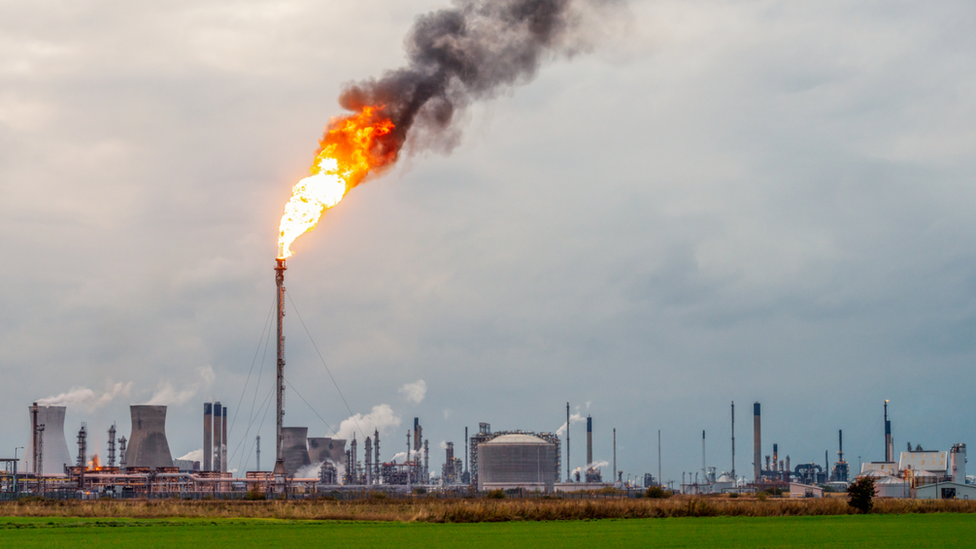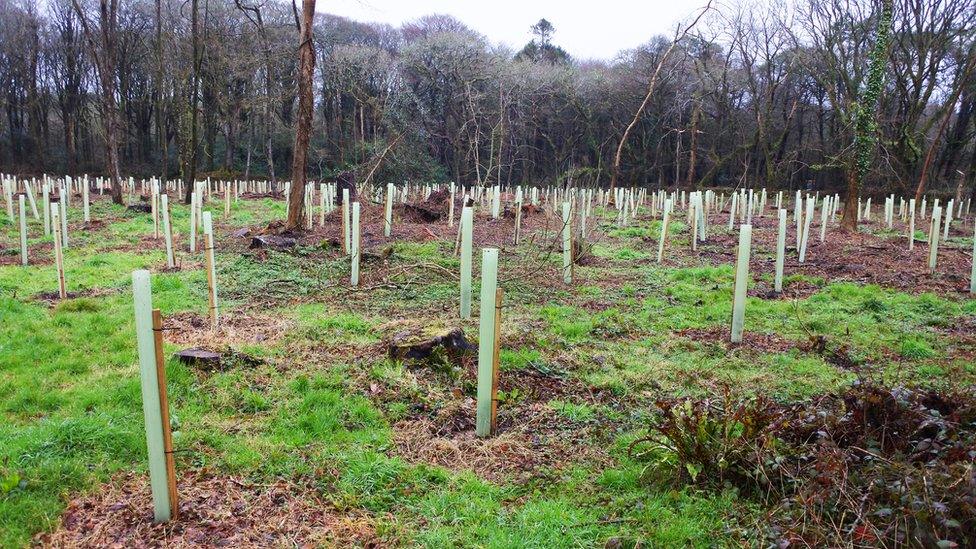Climate change bill should set zero emissions target
- Published
- comments

A net-zero target for reducing greenhouse gas emissions is "necessary" in Scotland's Climate Change Bill to limit global temperature rises, according to MSPs.
The bill has been criticised by environmentalists for not setting a firm date for this goal.
It proposes cutting them by 90% by 2050 and setting a net-zero target when a "clear pathway" exists to achieve it.
Holyrood's environment committee said a "greater urgency of action" was needed.
It said ministers should review the targets based on fresh advice requested from the independent Committee on Climate Change (CCC).
That advice is expected in May.
The bill was drafted before the Intergovernmental Panel of Climate Change (IPCC) issued its stark warning on the impact of global warming.
The IPCC said the world needed to make "rapid, far reaching and unprecedented" changes if temperature rises were to be limited to 1.5C.

What does Net-Zero mean?

The terms carbon neutral and net-zero are often used interchangeably but there are differences.
Carbon dioxide (CO2) is the most abundant greenhouse gas but there are others which the Scottish government counts and they are not all carbon-based.
Therefore some climate change campaigners prefer the term net-zero as it includes not just CO2 and methane but also nitrous oxide, which is emitted during agricultural and industrial activities as well as from fossil fuels.
Simply being carbon neutral would not stop global warming because these other gases are also harmful to the atmosphere.
Perhaps an even better term would be "climate neutral".

The Holyrood committee's report urges clarity on the temperature limit in the bill and calls for that figure to be set at 1.5C.
Gillian Martin, convener of Holyrood's environment committee, said they welcomed the introduction of the bill and the opportunity to examine how Scotland can take action on global warming.
She added: "There is no precedent in human history for the speed and scale of change needed to tackle climate change and reduce harmful emissions."
Ms Martin called for greater urgency and action across all parts of government, across the wider public and private sectors and by individuals.
"We've all seen the catastrophic damage caused by climate change all around the world, and the threat this has on people's lives, wildlife and our natural environment," she said.
"That's why we've called for the bill to reflect the most ambitious targets possible, to ensure future generations inherit a world that is healthy and sustainable."
'Vital period'
The committee calls for the bill's journey through parliament to be timetabled so the fresh CCC advice can be given "thorough and detailed scrutiny".
It added that it would like to see Scotland at the forefront in developing technologies that help meet emissions targets.
Caroline Rance, climate campaigner at Friends of the Earth Scotland and member of Stop Climate Chaos Scotland said: "It's clear from the evidence given to the committee that there is plenty of opportunity for Scotland to do more in the vital period before 2030 and the public support for urgent action is loud and clear.
"By taking positive action in the next few years we can secure warmer homes, better public transport and deliver the support to enable climate-friendly farming."
The Scottish government welcomed the report and said the targets currently being set were ambitious.
A spokesperson added: "Our bill contains the most ambitious statutory targets of any country in the world for 2020, 2030 and 2040, and will mean Scotland is carbon neutral by 2050.
"We want to go further and achieve net-zero emissions for all greenhouse gases as soon as possible. We'll set a target date as soon as this can be done credibly and responsibly.
"We are currently awaiting advice from the UK Committee on Climate Change, which is due on 2 May. If the committee advise that we can now set even more ambitious targets, we will act on that."
- Published23 January 2019
